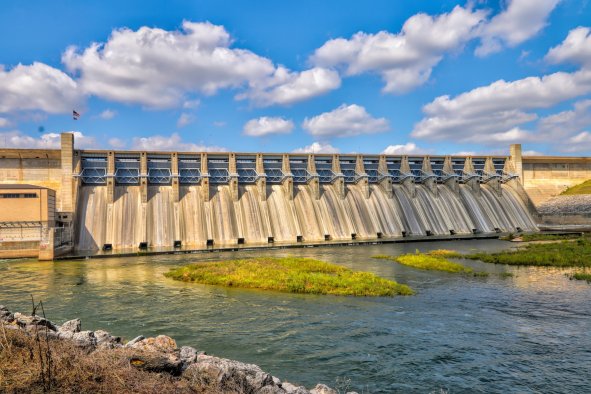Over-salting your food might be putting you at risk of certain cancers, researchers have found.
People who add salt to their food are 40 percent more likely to develop stomach cancer than those who don't, according to a new study in the journal Gastric Cancer.
This study confirms other studies that have found links between high salt consumption and stomach cancer in Asian countries, where saltier foods are commonly eaten.
"Our research shows the connection between the frequency of added salt and stomach cancer in Western countries too," study author Selma Kronsteiner-Gicevic, a researcher at MedUni Vienna's Center for Public Health, said in a statement.
Americans consume more than 3,400 mg of salt each day on average, according to the CDC, higher than the recommended 2,300 mg of salt per day.
The researchers—hailing from the Medical University of Vienna in Austria—analyzed data collected from over 470,000 adults across the U.K. between 2006 and 2010. The participants had been asked a number of questions, including "How often do you add salt to your food?" They then compared the questionnaire answers with levels of salt detected in urine from cancer patients.
They discovered that people who often or always added salt to their food were 39 percent more likely to develop stomach cancer over an 11-year period than those who added little to no salt.
"Our results also stood up to the consideration of demographic, socioeconomic and lifestyle factors and were just as valid for prevailing comorbidities," Kronsteiner-Gicevic said.
This increase is 40 percent of an already relatively small risk, however. The lifetime risk of developing stomach cancer is about one in 101 for men, and one in 155 in women, according to the American Cancer Society.
Stomach cancer is the fifth-most common cancer, and the third leading cause of cancer-related deaths. Other risk factors include infection by the bacteria Helicobacter pylori, age, smoking, chronic stomach inflammation, and obesity.
In the U.S., the five-year survival rate for stomach cancer is about 33 percent. However, if the cancer is caught before it spreads outside the stomach, the five-year survival rate rises to 72 percent. Unfortunately, only about one in three stomach cancers in the U.S. are diagnosed at this early stage.
"With our study, we want to raise awareness of the negative effects of extremely high salt consumption and provide a basis for measures to prevent stomach cancer," Tilman Kühn, study co-author and a researcher at MedUni Vienna's Center for Public Health, said in the statement.
Do you have a tip on a science story that Newsweek should be covering? Do you have a question about stomach cancer? Let us know via science@newsweek.com.
Disclaimer: The copyright of this article belongs to the original author. Reposting this article is solely for the purpose of information dissemination and does not constitute any investment advice. If there is any infringement, please contact us immediately. We will make corrections or deletions as necessary. Thank you.



